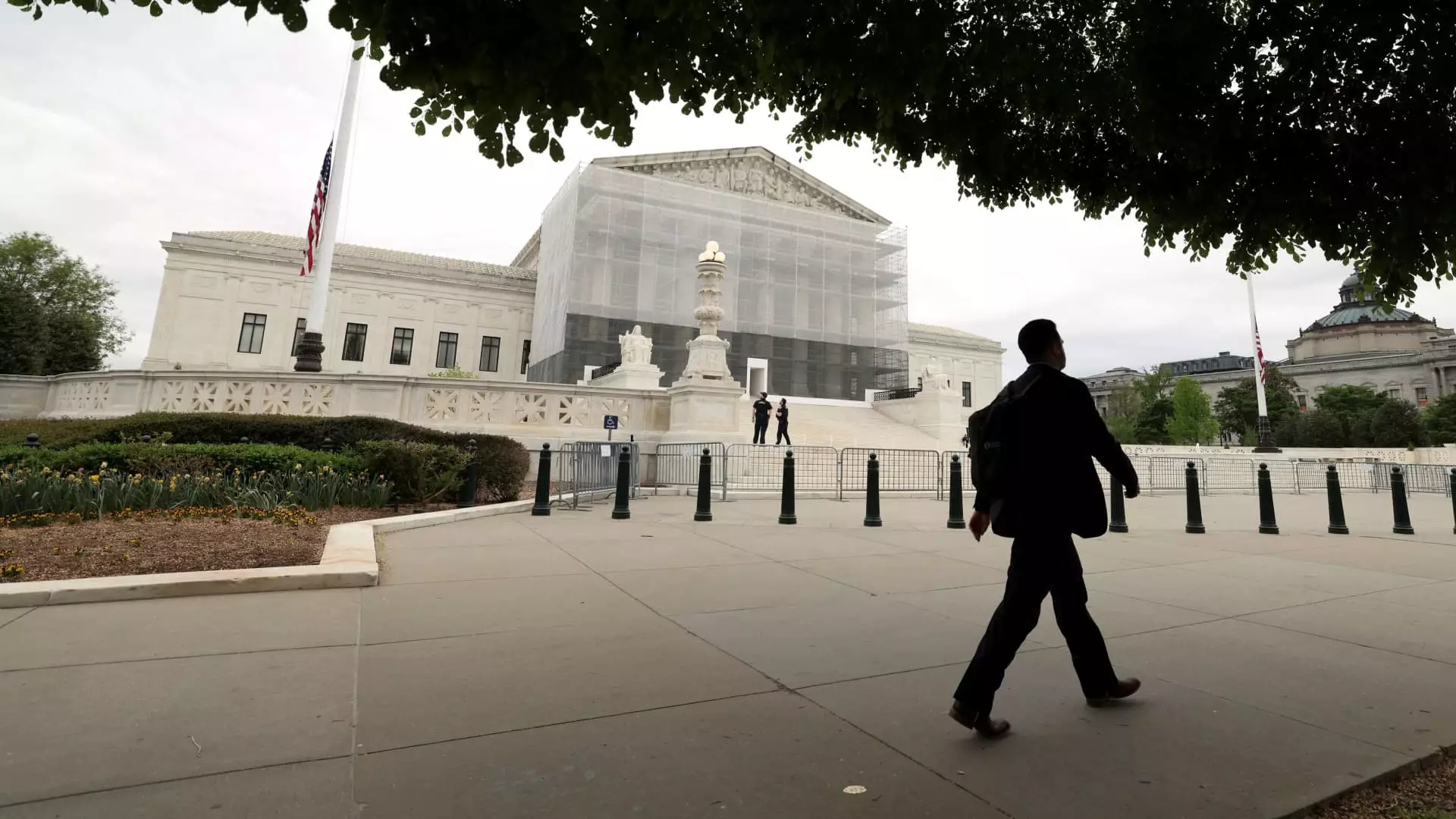In a landmark ruling, the Supreme Court’s recent decision to halt the expulsion of Venezuelan nationals underscores a critical examination of the legal framework employed under the Trump administration. The ruling, which emerged from a 7-2 majority, shines a harsh light on the inadequacies of the due process afforded to detainees facing deportation—a dramatization of how national security arguments can often collide with individual rights amid political turbulence. This scenario epitomizes a governing philosophy marred by panic, where laws are weaponized rather than wielded to protect the fabric of justice.
The court’s ruling highlighted a simple yet profound injustice: the mere 24-hour notice given to individuals facing removal stands as a glaring violation of their rights. The assertion by the justices that “notice devoid of information about how to exercise due process rights” fails to pass muster is reflective of a deeper narrative; it challenges the procedural robustness that defines a just judicial system. Rather than operating on the principle of “innocent until proven guilty,” the administration appears to have embraced a more draconian ethos, targeting individuals based on their presumed affiliations.
Misapplication of the Alien Enemies Act
At the heart of this case lies the contentious application of the Alien Enemies Act (AEA). This 18th-century law, once considered a relic, has been resurrected and wielded against individuals on flimsy grounds of alleged gang membership. The executive order that invoked the AEA, categorizing members of the Venezuelan gang Tren de Aragua as “invaders” pledged hostility against the United States, is an extreme instance of overreach. This sweeping characterization positions any Venezuelan national as a potential enemy, discarding the complexities of individual circumstances for the sake of a misguided national security stance.
Although the court refrained from delving into the legality of the AEA itself in this instance, its decision to provide temporary relief underscores the critical need for a much more meticulous approach before labels of “enemy” are hastily assigned. Aligning with a center-left liberal viewpoint, I cannot help but lament this descent into xenophobia, fueled undoubtedly by political rhetoric designed to incite fear rather than foster an inclusive society.
Political Ramifications of Legal Missteps
The dissenting opinions from Justices Alito and Thomas add another layer of complexity to the current judicial landscape. Their contention that there was no “imminent danger of removal” serves as a reminder of the tenuous balances within the judiciary, particularly when one political faction seeks to use the courts to bolster their narrative. Such dissent only highlights the tension between different interpretations of law, with immediacy and urgency swapped out for negligence and complacency. The Alito-Thomas perspective dismisses the Supreme Court’s majority view as overly critical, thereby perpetuating a narrative that is hostile towards the rights of the individuals caught in this legal web.
The Trump administration’s maneuvering of the AEA from a position of fear, rather than a commitment to justice, raises legitimate concerns about the direction of our legal standards. This approach undercuts foundational principles, turning the judiciary from a bastion of protection into an apparatus that can be manipulated for partisan ends. When legal frameworks are no longer respected as the rule of law but are instead reimagined as tools of oppression, democracy itself becomes precarious.
The Need for Progressive Policy Reform
This episode should serve as a wakeup call for advocates of civil liberties and progressive policies. The Supreme Court’s decision to stipulate that fundamental rights should take precedence over speculative threats signals a need for proactive legal reforms, aimed at ensuring that no individual—regardless of their origin—faces undue legal hardship. The recognition of the significant personal stakes for those affected reveals a moral obligation to craft legislation that emphasizes human dignity over unfounded fears.
This legal journey illustrates the profound implications of the intersection between national security and human rights. As awareness grows around the fragility of legal rights amid political maneuvering, it becomes increasingly apparent that only a conscientious and deliberate recalibration of our approach can navigate the treacherous waters ahead. Embracing a tenant of inclusivity and protecting that which makes us human is not merely a matter of policy; it is imperative to the survival of our democracy.


Leave a Reply